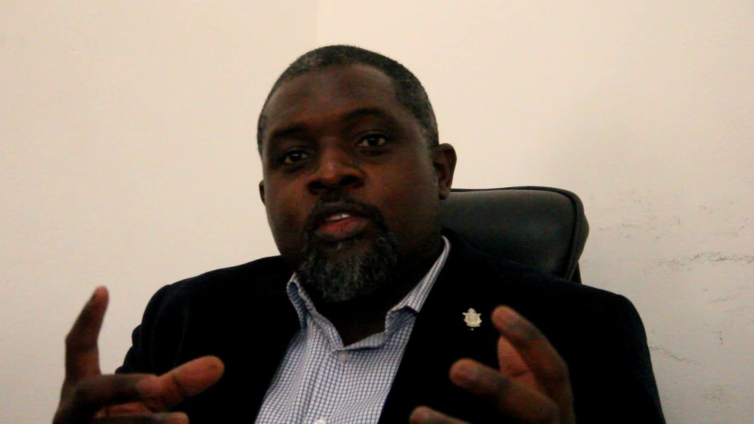Senior Researcher and Fellow at the Kumasi Centre for Collaborative Research, has said that the new discharge protocols the Ghana Health Service has adopted for Covid-19 patients are scientifically in order.
Dr John Amuasi told Joy News the new discharge protocols were recommended by the World Health Organisation (WHO) in a scientific brief report dated June 17, 2020.
One of the new discharge protocols; to discharge persons who are asymptomatic, has left Ghanaians baffled by the GHS’ latest COVID-19 related decision.
There are concerns that the move to discharge asymptomatic cases into the general population may be difficult to manage and monitor.
Dr Amuasi explained that in science, the harder the rule is to follow, the better it is for research.
“It is very difficult for the lay people to appreciate what they call ‘standards are lowered in the name of science’ because the impression is always that the more stringent, the more difficult a rule is to follow, the better that rule is. It sounds counterintuitive,” he said.
What the scientist is interested in, according to Dr Amuasi, is “‘what is the risk of someone who has been discharged being able to spread the infection?’ and there has not been a single piece of evidence suggesting that someone who has had the infection, doesn’t have any more symptoms after 14 days or more has been able to pass the infection on to anybody,” he added.
He also disclosed that it is not unusual for the WHO to recommend such new discharge protocols because the organisation is always reviewing protocols to help countries better deal with a public health crisis.
“For some diseases that have been with us for decades, in fact centuries, like TB, more recently HIV/AIDS and several other infectious diseases, the WHO is constantly reviewing the recommendations.”
“Even for diseases like Buruli ulcers, and other regulated tropical diseases we are constantly researching ways of shortening the time of treatment, ways of keeping people in hospital for much shorter.”
“I can tell you even for disease like human african trypanosomiasis; for which people used to be kept in hospitals for a month or more, now we have treatment that can keep people in hospital for barely 3 days and recover at home on account of very very rigorous research that has been carried out,” he said.
He said that since WHO is much as a scientific body, it is also a diplomatic body and therefore only recommends and does not prescribe so that member states can decide on their own whether they would like to adopt one of the global health body’s protocols as Ghana has done.
Latest Stories
-
Zambian FA president charged with money laundering
5 mins -
Mysstel releases video for ‘Paradise’
8 mins -
We are yet to receive an apology from Ashanti Regional Minister – ECG
10 mins -
UEFA International Tournament: Ernest Ofori scores for Black Starlets in defeat to Russia
17 mins -
Cocoa price surge linked to production decline -COCOBOD CEO
22 mins -
Atarah Praise returns on May 19 at Adenta Barrier
23 mins -
World Robotics Championship: 18 pre-tertiary students poised to win medals for Ghana at global competition
27 mins -
Drowned widow was scammed out of $1.5m on dating app hoax, left note about secret ‘double life’
50 mins -
ECG workers threaten to disconnect power from Ashanti Regional Minister’s home
55 mins -
Brain tumour shatters 20-year-old’s dream of becoming a doctor
1 hour -
ICDP Ghana introduces portable ultrasound machines in rural communities
1 hour -
Seven killed in sleep after Ethiopia building collapses
1 hour -
Fitch affirms ETI at B-; Outlook stable
2 hours -
Pictures: Bawumia meets Pope Francis
3 hours -
Former Bibiani GoldStars midfielder Frank Adjei Jr continues fine form in Swedish League
3 hours

